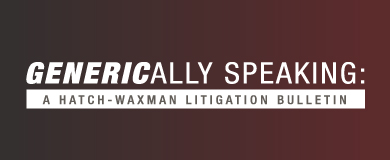- Acumen Powered by Robins Kaplan LLP®
- Affirmative Recovery
- American Indian Law and Policy
- Antitrust and Trade Regulation
- Appellate Advocacy and Guidance
- Business Litigation
- Civil Rights and Police Misconduct
- Class Action Litigation
- Commercial/Project Finance and Real Estate
- Corporate Governance and Special Situations
- Corporate Restructuring and Bankruptcy
- Domestic and International Arbitration
- Entertainment and Media Litigation
- Health Care Litigation
- Insurance and Catastrophic Loss
- Intellectual Property and Technology Litigation
- Mass Tort Attorneys
- Medical Malpractice Attorneys
- Personal Injury Attorneys
- Telecommunications Litigation and Arbitration
- Wealth Planning, Administration, and Fiduciary Disputes
Acumen Powered by Robins Kaplan LLP®
Ediscovery, Applied Science and Economics, and Litigation Support Solutions
-
April 23, 2024David Martinez Recognized Among Top 100 Lawyers in Los Angeles by LA Business Journal
-
April 15, 2024Robins Kaplan Named to 2024 BTI Client Service A-Team
-
April 9, 2024Robins Kaplan LLP Files Complaint Against Social Media Giants Meta, Snap, TikTok on Behalf of Spirit Lake Nation, Menominee Indian Tribe of Wisconsin
-
April 30, 2024Navigating Generational Dynamics
-
May 2-3, 2024ACI Advanced Forum on Managed Care Disputes and Litigation
-
May 6, 2024Litigating with the Legends
-
First QuarterGENERICally Speaking: A Hatch-Waxman Litigation Bulletin
-
March 2024e-Commerce: Pitfalls and Protections
-
March 25, 2024Endo Ventures Unlimited Co. v. Nexus Pharms. Inc.
-
September 16, 2022Uber Company Systems Compromised by Widespread Cyber Hack
-
September 15, 2022US Averts Rail Workers Strike With Last-Minute Tentative Deal
-
September 14, 2022Hotter-Than-Expected August Inflation Prompts Massive Wall Street Selloff
Find additional firm contact information for press inquiries.
Find resources to help navigate legal and business complexities.
Horizon Medicines LLC v. Alkem Labs. Ltd.
Duexis® (ibuprofen / famotidine)
November 30, 2020

Case Name: Horizon Medicines LLC v. Alkem Labs. Ltd., No. 18-1014-RGA, 2020 WL 7022591 (D. Del. Nov. 30, 2020) (Andrews, J.)
Drug Product and Patent(s)-in-Suit: Duexis® (ibuprofen / famotidine); U.S. Patent No. 8,067,033 (“the ’033 patent”)
Nature of the Case and Issue(s) Presented: Duexis® is a tablet formulation indicated for relief from rheumatoid arthritis/osteoarthritis and is intended to decrease the risk of developing upper-gastrointestinal ulcers. The ’033 patent recited a pharmaceutical composition comprising (i) a first portion with 800 mg ibuprofen, (ii) a second portion with 26.6 mg famotidine, (iii) no more than 1% sulfamide, (iv) certain stability requirements, and (v) three-times-a-day dosing. The court presided over a bench trial, considered the parties’ post-trial briefs, and found that claims 1, 8, 11, and 14 of the ’033 patent were invalid for obviousness and not infringed. The court further found that the asserted claims were not invalid for indefiniteness.
Why Alkem Prevailed: The court construed “a first portion” to mean “an ibuprofen compartment that is not a core” and “a second portion” to mean “a famotidine compartment that is not a shell.” Under these constructions, Plaintiff asserted only doctrine-of-equivalent (“DOE”) infringement. Horizon applied DOE to more than one claim element—“a first portion” and “a second portion”—at the same time. The court found that this application violated the “limitation-by-limitation” rule of DOE and rejected Horizon’s infringement theory. The court went on to explain that even if it were to apply the “insubstantial differences” test or the “function-way-result” test, Horizon’s DOE argument would fail on the merits.
Next, the court addressed Alkem’s obviousness defense. The parties did not dispute that the withdrawal of Cox-2 inhibitors from the U.S. market in 2004-2005 created a market void for drug products used to manage pain and that the most widely prescribed nonsteroidal anti-inflammatory drug (“NSAID”), ibuprofen, was an obvious replacement. Horizon argued, however, that a skilled artisan would not know the “standard” dose of ibuprofen. The court disagreed, noting that a skilled artisan—wanting to administer the greatest dose to provide relief while balancing the standard recommended practice of using the lowest effective dose—would have been motivated, with a reasonable expectation of success, to administer 800 mg ibuprofen.
The court next found that a skilled artisan would have been further motivated to provide an alternative therapy for reducing the risk of ulcers associated with the administration of ibuprofen and that Alkem had demonstrated the benefits of using an H2RA, such as famotidine. The court also found that because the FDA had approved famotidine dosing regimens of 1, 2, and 4 times daily, it would have been obvious to dose 3 times daily. Finally, to achieve the stability claim limitations, the court found that a skilled artisan would have reasonably expected that separating famotidine from an incompatible API (e.g., ibuprofen) would have improved stability.
Finally, the court addressed Alkem’s indefiniteness defense. Alkem argued that the “no more than about 1% sulfamide” limitation was indefinite. In support, Alkem argued that the ’033 patent did not define “sulfamide”; provided no chemical name, structure, or specific method of testing for “sulfamide”; did not refer to the USP; and did not provide any method for identifying/quantifying “sulfamide” in a composition. The court disagreed, explaining that when a skilled artisan looked to the USP to identify the known impurities of famotidine, there was only one choice with a “sulfamoyl amide” functional group, and thus the patent was not invalid as indefinite.
Related Professionals
Christopher A. Pinahs
Partner
Related Publications
Related News
If you are interested in having us represent you, you should call us so we can determine whether the matter is one for which we are willing or able to accept professional responsibility. We will not make this determination by e-mail communication. The telephone numbers and addresses for our offices are listed on this page. We reserve the right to decline any representation. We may be required to decline representation if it would create a conflict of interest with our other clients.
By accepting these terms, you are confirming that you have read and understood this important notice.
